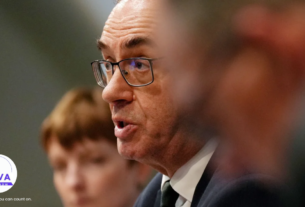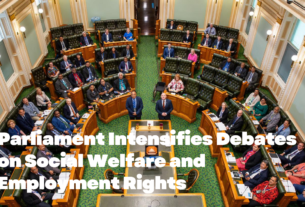As the general election approaches and Labour looks increasingly likely to return to power, the party finds itself grappling with a dilemma it hoped to avoid what to do about key Conservative policies it has long opposed but may now be forced to keep. Chief among them is the two-child benefit cap, a controversial welfare limit that restricts financial support to families with more than two children.
Introduced in 2017 under austerity-era reforms, the two-child cap was immediately met with criticism from Labour, who denounced it as punitive and socially damaging. For years, Labour MPs have argued that the policy deepens child poverty, penalises low-income families, and fails to reflect the realities of modern family life. Shadow ministers have repeatedly labelled it “cruel” and “inhumane.”
Yet despite this strong moral stance, Labour’s current leadership has been cautious in making firm promises to repeal the cap. With the party positioning itself as fiscally responsible and determined not to reopen what it calls “the cheque book politics” of the past, the prospect of scrapping a policy with significant budgetary implications has become politically and financially complicated.
Estimates suggest removing the cap could cost the government over £1.5 billion per year, a price tag that could risk undermining Labour’s message of economic discipline. In the context of tight public finances and pressing demands for NHS funding, school improvements, and housing investment, committing to reverse the cap may be seen by leadership as unaffordable, at least in the early years of government.
Internally, the debate has created tension between Labour’s left and its more centrist leadership. Many backbenchers and campaign groups are still urging a firm commitment to scrap the cap, arguing that lifting children out of poverty should be a priority in any fair society. The leadership, however, remains non-committal, offering empathy but no guarantees.
Keir Starmer has said he does not support the two-child policy in principle, but has stopped short of pledging its removal, stating instead that Labour will “review all policies” in government and make decisions based on affordability and impact. Critics view this as a retreat from Labour’s traditional values, while supporters argue it’s a realistic approach for a party that wants to be seen as trustworthy on the economy.
Charities and anti-poverty organisations have warned that keeping the policy in place would harm hundreds of thousands of children, particularly in working families already grappling with the cost-of-living crisis. For many, the issue is not just about economics, it’s about values, and whether Labour will deliver the compassionate change it has long promised.
This tension encapsulates a broader challenge facing the party: how to reconcile its ideals with the fiscal reality it will inherit. In an era of public scepticism and economic caution, the cost of doing good may be weighed more heavily than ever before.
Labour’s manifesto is expected to leave room for future action without making immediate, expensive promises. It may highlight the need to reform the welfare system overall rather than focus on a single policy. But unless Labour takes a clearer position, the two-child cap could become a symbol of compromise, or hesitation, in a party trying to balance principle with power.
Whether the cap is quietly left in place or gradually phased out, the political cost of inaction may still prove high. For a party once defined by its promise to protect the most vulnerable, the question remains: can Labour afford not to scrap a policy it has always opposed?




